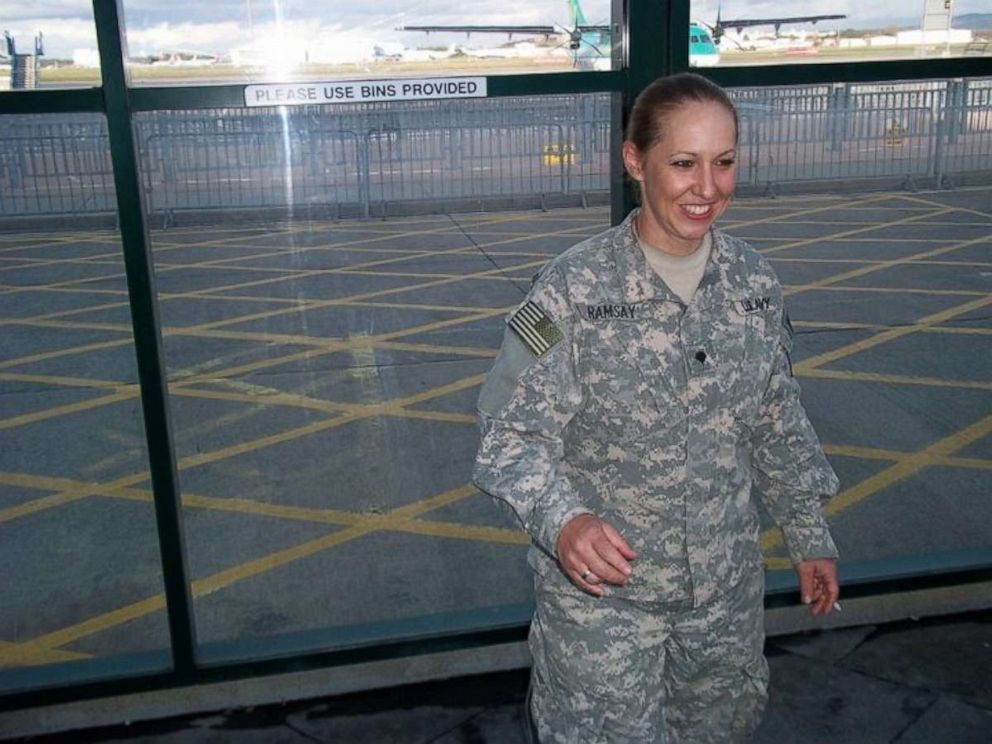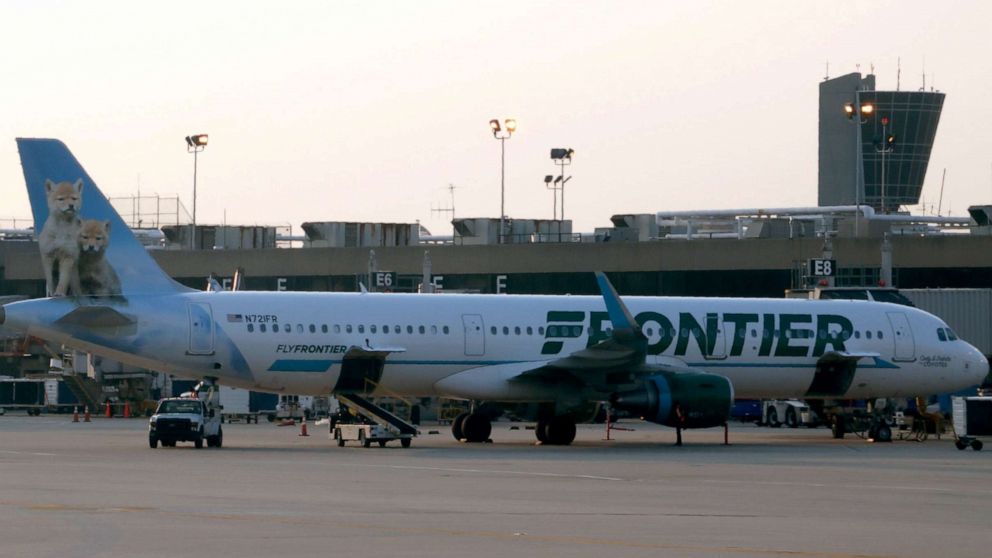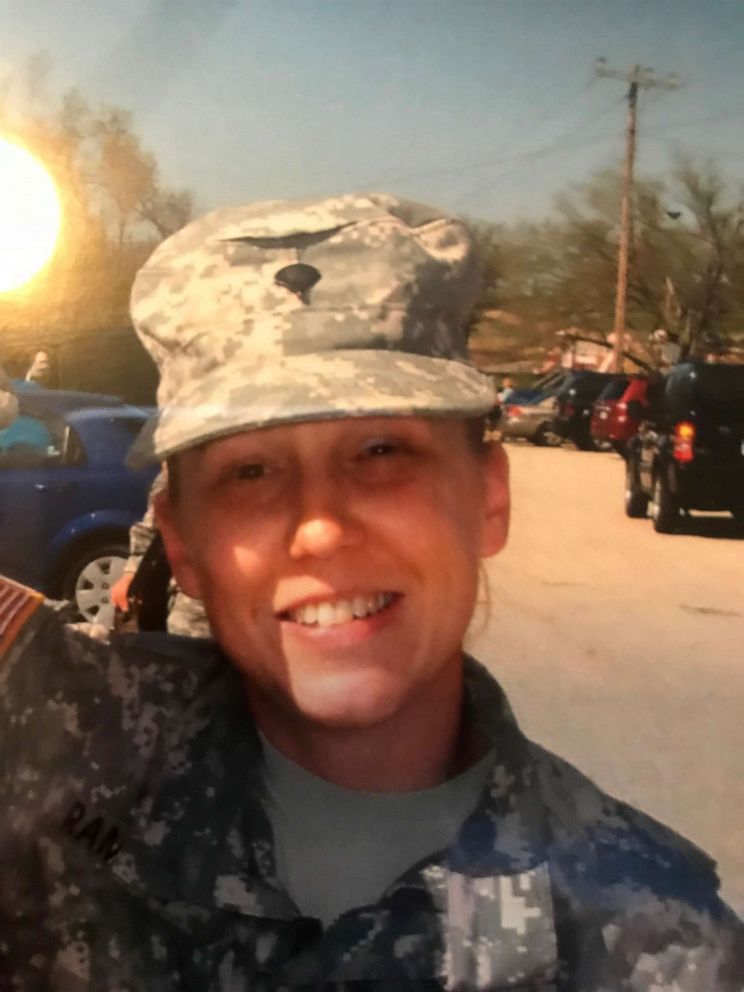Class action lawsuit claims Frontier Airlines mishandled cases of in-flight sexual assault
This suit appears to be the first of its kind for in-flight sexual assault.
U.S. Army veteran Lena Ramsay said she was relaxing in the darkened cabin of a late night flight when she suddenly felt the hands of the person seated behind her reach up and grope her. Ramsay alerted a flight attendant, she told ABC News, but said that she was instructed to return to her seat.
On Monday, Ramsay and another passenger who said she suffered similar unwanted groping filed a class-action lawsuit in Colorado federal court against Frontier Airlines, claiming that airline employees mishandling multiple cases of in-flight sexual assault. The lawsuit alleges that Frontier “fail[ed] to have and/or follow policies and procedures to prevent, report, and respond to sexual assault of its passengers on its flights.”
While the problem of unwanted sexual assault on airline flights is not new, the class action that Ramsay and others filed appears to be the first of its kind, according to Ramsay’s attorney, Tyler Fox..

In fiscal year 2014, 38 cases of in-flight sexual assault were reported to the Federal Bureau of Investigation (FBI), a figure that increased to 63 cases in the 2017 fiscal year, according to an FBI advisory on in-flight sexual assault published in the spring of 2018.
“The attacks generally occur on long-haul flights when the cabin is dark,” the report cautioned.
Ramsay’s attorney believes the airlines are not doing enough to prevent in-flight sexual assaults before they happen.
“From my research and talking to other attorneys that have handled these kind of claims, the airlines seem to handle them in a piecemeal fashion, despite the FBI’s advisory, particularly with respect to the red-eye flights,” Cambridge, Massachusetts-based attorney Tyler Fox told ABC News. “It’s clear that nothing that any or all the airlines are doing is changing or preventing the sexual assaults, so it seemed to me that the necessary and the best way to get them to do something to protect consumers, in this airline passengers, [is] a class action to get injunctive relief.”
Over the course of his investigation, Fox, who specializes in sexual assault cases, said that he determined that it’s not uncommon for alleged perpetrators to walk off the plane after an accusation of violative behavior, and that few policies exist among U.S. airlines to prevent such incidents from happening or address them properly when they do.
In the class action complaint, Ramsay alleges she was sexually assaulted on a Frontier flight from Denver to Providence in October 2018. She claims that she reported the incident to a flight attendant, who she said refused to let her move to a seat away from her alleged assailant. The flight attendant failed to either report the incident to airline superiors or request that law enforcement officials in the arriving city be contacted. Additionally, the suit claims that Frontier officials subsequently failed to provide either her or law enforcement officials with the identity of her alleged assailant, or provide the names of potential witnesses who may have observed the incident she described to ABC News.
“I was completely humiliated and at a complete loss,” Ramsay told ABC News. “You’re in an enclosed space, you just want to get away and I went to the people who I thought would make it alright and they didn't.”

Ramsay said in an interview that she watched as the flight attendant she had reported the incident to assist the perpetrator off the plane. Ramsay said she next alerted the pilots, whom she said alerted local law enforcement and the U.S. Transportation Security Administration (TSA), which oversees airline security. Fox and Ramsay eventually contacted the FBI, they said, but ultimately no criminal charges were filed.
A spokesperson for the FBI's Boston field office declined to comment on the lawsuit, and a spokesperson for the Massachusetts U.S. Attorney said that the office as a policy neither confirms nor denies the existence of ongoing investigations.
Another plaintiff in the lawsuit, identified in court papers only as Jane Doe, alleges that she was sexually assaulted on a Frontier flight from Denver, Colorado to Florida in Nov., 2018. She, too, reported her assault to a flight attendant, who also allegedly failed to report the complaint to superiors or contact law enforcement officials, according to the complaint. Doe also alleges that Frontier failed to provide her with the necessary information to identify the alleged perpetrator or potential witnesses.
Frontier Airlines declined an ABC News request for comment on the specific claims of the suit, citing the pending litigation, but issued a statement asserting that “the safety of our passengers and crew members is our number one priority at Frontier Airlines and we have strict policies in place to proactively and appropriately respond to reports of misconduct and alleged crimes.”
There has been some federal action in response to cases of in-flight sexual assault. On Oct. 5, 2018, President Donald Trump signed the FAA Reauthorization Act of 2018, referring to the Federal Aviation Administration. The law mandates the establishment of a National In-Flight Sexual Misconduct Task Force. Earlier this year, Department of Transportation (DOT) Secretary Elaine Chao announced the 14 members of the task force, which will answer to a subcommittee of the DOT’s Aviation Consumer Protection Advisory Committee (ACPAC).

According to DOT officials, the role of the subcommittee will be to “review and evaluate current practices, protocols, and requirements of U.S. airlines in responding to and reporting allegations by passengers of sexual misconduct on board commercial aircraft,” as well as to, “provide recommendations on best practices relating to training, reporting, and data collection regarding incidents of sexual misconduct by passengers onboard commercial aircraft.”
Yet for passengers like Ramsay, who said that the alleged incident severely traumatized her, an ongoing condition that she said is exacerbated by the fact that to this day the identity of her alleged assailant remains a mystery, the legislation is too little and too late.
I went to the people who I thought would make it alright and they didn't.
Like many in her situation, Ramsay said she felt reluctant to come forward.
“I figured I have to put my name on this to make change, because if someone doesn’t do it, it’s just going to keep happening,” she said.
Fox points out that in light of this seemingly systemic problem, there are small steps that U.S. airlines could take right now to help alleviate the problem and reassure passengers that their safety is a priority. He suggested that airlines could make an announcement addressing the issue before a flight takes off -- during the period when flight attendants normally review safety protocols and warn passengers of restrictions like not smoking on board the flight.
“It seems to me that it would cost nothing and be very simple to say something like, please keep your hands to yourself, every passenger is entitled to their own space, and most importantly, which is true, that sexually assaulting or assaulting another passenger is a federal crime the FBI has jurisdiction on,” Fox said. “Even if that could scare or prevent a tiny percentage of perpetrators, that would be helpful.






